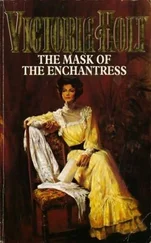Виктория Холт - The Shadow of the Pomegranate
Здесь есть возможность читать онлайн «Виктория Холт - The Shadow of the Pomegranate» весь текст электронной книги совершенно бесплатно (целиком полную версию без сокращений). В некоторых случаях можно слушать аудио, скачать через торрент в формате fb2 и присутствует краткое содержание. Жанр: Исторические любовные романы, на английском языке. Описание произведения, (предисловие) а так же отзывы посетителей доступны на портале библиотеки ЛибКат.
- Название:The Shadow of the Pomegranate
- Автор:
- Жанр:
- Год:неизвестен
- ISBN:нет данных
- Рейтинг книги:3 / 5. Голосов: 2
-
Избранное:Добавить в избранное
- Отзывы:
-
Ваша оценка:
- 60
- 1
- 2
- 3
- 4
- 5
The Shadow of the Pomegranate: краткое содержание, описание и аннотация
Предлагаем к чтению аннотацию, описание, краткое содержание или предисловие (зависит от того, что написал сам автор книги «The Shadow of the Pomegranate»). Если вы не нашли необходимую информацию о книге — напишите в комментариях, мы постараемся отыскать её.
The Shadow of the Pomegranate — читать онлайн бесплатно полную книгу (весь текст) целиком
Ниже представлен текст книги, разбитый по страницам. Система сохранения места последней прочитанной страницы, позволяет с удобством читать онлайн бесплатно книгу «The Shadow of the Pomegranate», без необходимости каждый раз заново искать на чём Вы остановились. Поставьте закладку, и сможете в любой момент перейти на страницу, на которой закончили чтение.
Интервал:
Закладка:
He would not forget his grandson Ferdinand. He should have an annual income of fifty thousand ducats and a share in Naples. As for Germaine, she must be provided for. She should have thirty thousand gold florins, and five thousand should be added to that while she remained a widow. Would that be long? He pictured her—gay Germaine—with a husband who did not have to resort to potions. Jealous anger almost choked him and he had to restrain himself in order to get back his breath.
He saw a man standing at his bedside and demanded: “Who is there?” Some of his servants came forward and said: “Highness, it is Adrian of Utrecht who has arrived here, having heard of the indisposition of Your Highness.”
Ferdinand turned his face to the wall to hide his anger. Adrian of Utrecht, the chief adviser of his grandson Charles.
So, he thought, the carrion crows have arrived already. They sit and wait for the last flicker of life to subside. They are mistaken. I’m not going to die.
He turned and gasped: “Tell…that man to go. He has come too soon. Send him away.”
So Adrian of Utrecht was forced to leave the house. But Ferdinand was wrong.
A few days later when his gentlemen came to his bed to wish him good morning, they found that he was dead.
The Princess Mary
THE CHRISTMAS FESTIVITIES WERE OVER AND KATHARINE was glad. She was expecting the child in February and was determined not to exhaust herself by overexertion.
Henry continued tender. He was quite happy for her to be a mere spectator at those entertainments in which he played the central part. He could tell her solicitously that she was to retire to bed and rest; then he would be off to Elizabeth Blount or perhaps to some other young woman who had caught his passing fancy.
Katharine did not mind. She was patiently waiting.
That winter was a hard one—the coldest in living memory—and it was while the frost was at its worst, and the ice on the Thames so thick that carts could pass over it, that news was brought to Henry of the death of Ferdinand.
He received it with elation. Ferdinand, that old trickster, was dead. Henry would never have completely forgiven him for duping him as he had. It was the passing of an era; he knew that well. There would be a new ruler in Spain. Henry wanted to laugh aloud. It would be that boy whom he had met in Flanders—that slow-speaking young oaf, with the prominent eyes and the pasty skin. There would be one who was a complete contrast to Ferdinand.
He was far from displeased. Now he would turn his hatred and envy of the Spanish ruler to the King of France, that sly-eyed, fascinating creature who was bold and had begun his reign—as Henry had longed to do—by offering his people conquest.
But for the time being, Ferdinand was dead.
“This will be a shock to the Queen,” he said to Wolsey when they discussed the news. “It would be better to keep it from her until after the child is born.”
“Your Grace’s thoughtfulness is equalled only by your wisdom.”
“You agree, eh, she should not be told?”
“It would be unwise to tell her in her present state. There might be another disaster.”
The King nodded. His eyes had become cunning. Wolsey followed his thoughts. Katharine had lost a powerful ally in her father. If the King should decide to repudiate her now, there would be no great power in Europe to be incensed by this treatment of her, for in place of a warlike and cunning father-protector she had only a young and inexperienced nephew.
Wolsey thought: Bear a healthy son, Katharine, or you will be in acute danger.
“I will let it be known,” said Wolsey, “that on pain of Your Grace’s displeasure, none is to tell the Queen of her father’s death.”
IT WAS ON the 18th day of February of the year 1516, in the Palace of Greenwich, when Katharine’s child was born.
Katharine came out of her agony to hear the cry of a child.
Her first thought was: “Then the child is alive.”
She saw faces about her bed, among them Henry’s. She heard a voice say: “The child is healthy, Your Grace. The child lives.”
She was aware of a great contentment. How she loved that child! All my life I shall love it, she thought, if only for the joy it has brought me in this moment.
But why did they say “the child?”
“A…boy?” she asked.
The brief silence told her the answer before it came: “A bonny girl, Your Grace.”
There was a faint intake of breath. But it was too much to hope for a boy and a child that lived.
Henry was beside her bed.
“We have a healthy child, Kate,” he said. “And the next…why, that will be a boy.”
Days of acute anxiety followed; she was terrified that events would take the same tragic course as on so many other occasions. But this little girl was different from the beginning; she lived and flourished.
When it was time for her christening it was decided that she should be called Mary after Henry’s sister who, having returned to England and been publicly married to the Duke of Suffolk at Greenwich, was now installed high in the King’s favor.
It was the Queen’s great delight to watch over the Princess Mary. She loved her with deep devotion which could scarcely have been so intense but for all the disappointments which had preceded the birth.
Even the grief she suffered when she heard of her father’s death, and the faint fear which, knowing something of the exigencies of state, this event must arouse in her, was softened, because at last she had her child, her healthy little Mary, the delight of her life.
KATHARINE, playing with her daughter, knew that this was the happiest period of her life. The child was charming; she rarely cried but would lie solemnly in her cradle or in Katharine’s arms.
Katharine would stand with the wet-nurse, Katharine Pole, and the governess, Margaret Bryan, wife of Sir Thomas Bryan, about the little Princess’s cradle; and they made an admiring circle, while they watched the child playing with the gold pomander which had been a present from her Aunt Mary, now Duchess of Suffolk. The child seemed to love that ornament which later she might stuff with perfumes and wear about her waist, but which at the moment she liked to suck.
Henry would come in and join the circle. Then Katharine Pole and Margaret Bryan would draw back and leave the parents together.
Henry’s eyes would be glazed with tenderness. This was his child and he told himself that more than anything on Earth he wanted children. He marvelled at those plump wrists, at the fingers, at the eyes which looked solemnly into his. He was delighted with the down of reddish hair on that little head, because it was his own color.
Katharine watching him loved him afresh; they had something they could share now: this adorable little daughter.
“By God, Kate,” murmured Henry, “we’ve produced a little beauty.”
He wanted to hold her; and he was delighted when she did not cry as he picked her up. He would sit, looking a little incongruous, that big figure, glittering with jewels, holding the baby somewhat awkwardly yet so tenderly in his arms.
He insisted on having her brought to the banqueting hall or his presence chamber when his courtiers were present or when he was receiving foreign ambassadors.
“My daughter,” he would say proudly, and take her in his arms, rocking her to and fro.
She never cried as most children would, but her large solemn eyes would stare at that big face at this time all suffused with tenderness and love.
The ambassadors would look on, admiring the baby, and the courtiers were continually discovering new likenesses to the King.
“She has the temper of an angel,” said the Venetian ambassador.
Читать дальшеИнтервал:
Закладка:
Похожие книги на «The Shadow of the Pomegranate»
Представляем Вашему вниманию похожие книги на «The Shadow of the Pomegranate» списком для выбора. Мы отобрали схожую по названию и смыслу литературу в надежде предоставить читателям больше вариантов отыскать новые, интересные, ещё непрочитанные произведения.
Обсуждение, отзывы о книге «The Shadow of the Pomegranate» и просто собственные мнения читателей. Оставьте ваши комментарии, напишите, что Вы думаете о произведении, его смысле или главных героях. Укажите что конкретно понравилось, а что нет, и почему Вы так считаете.







